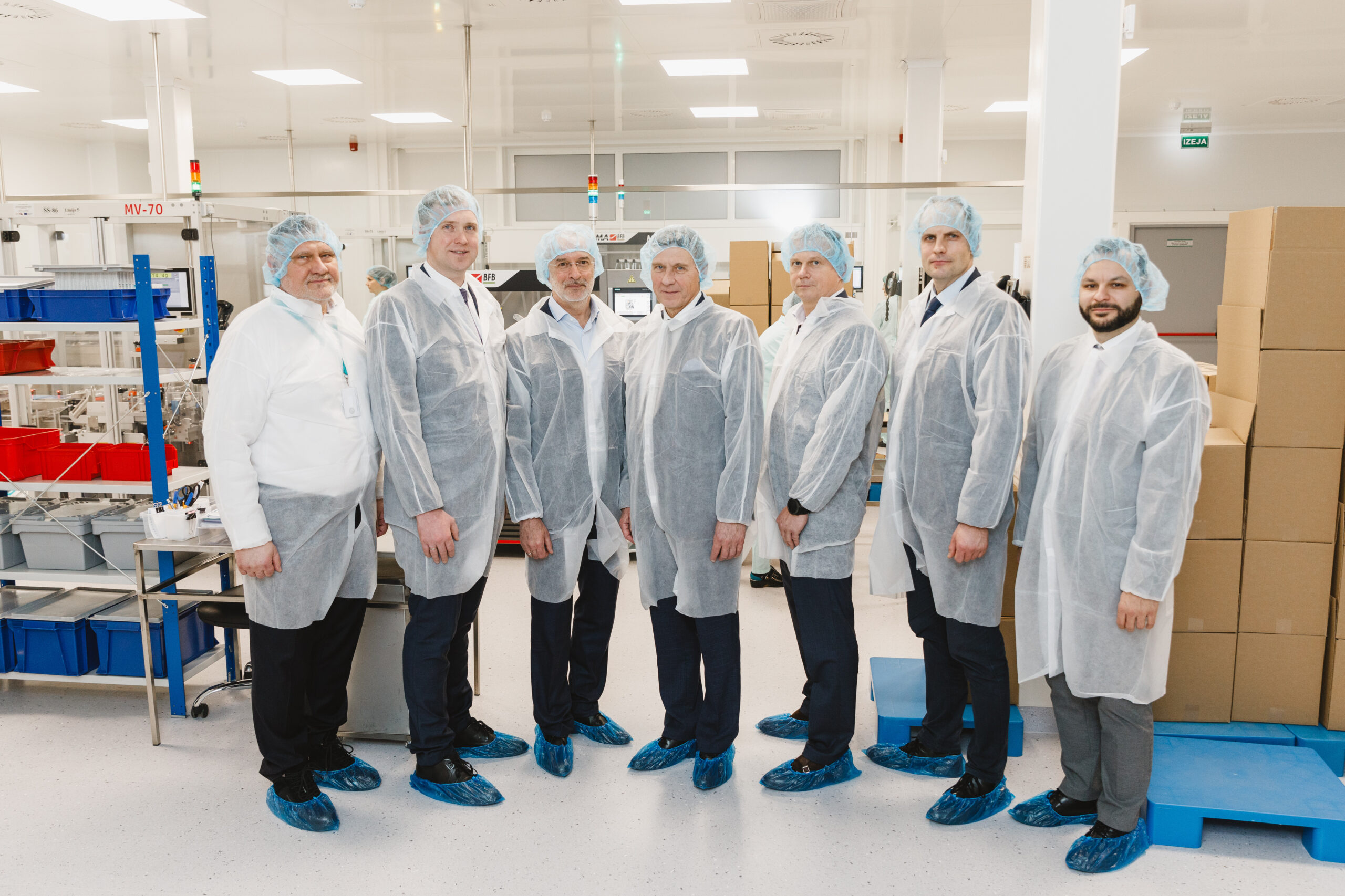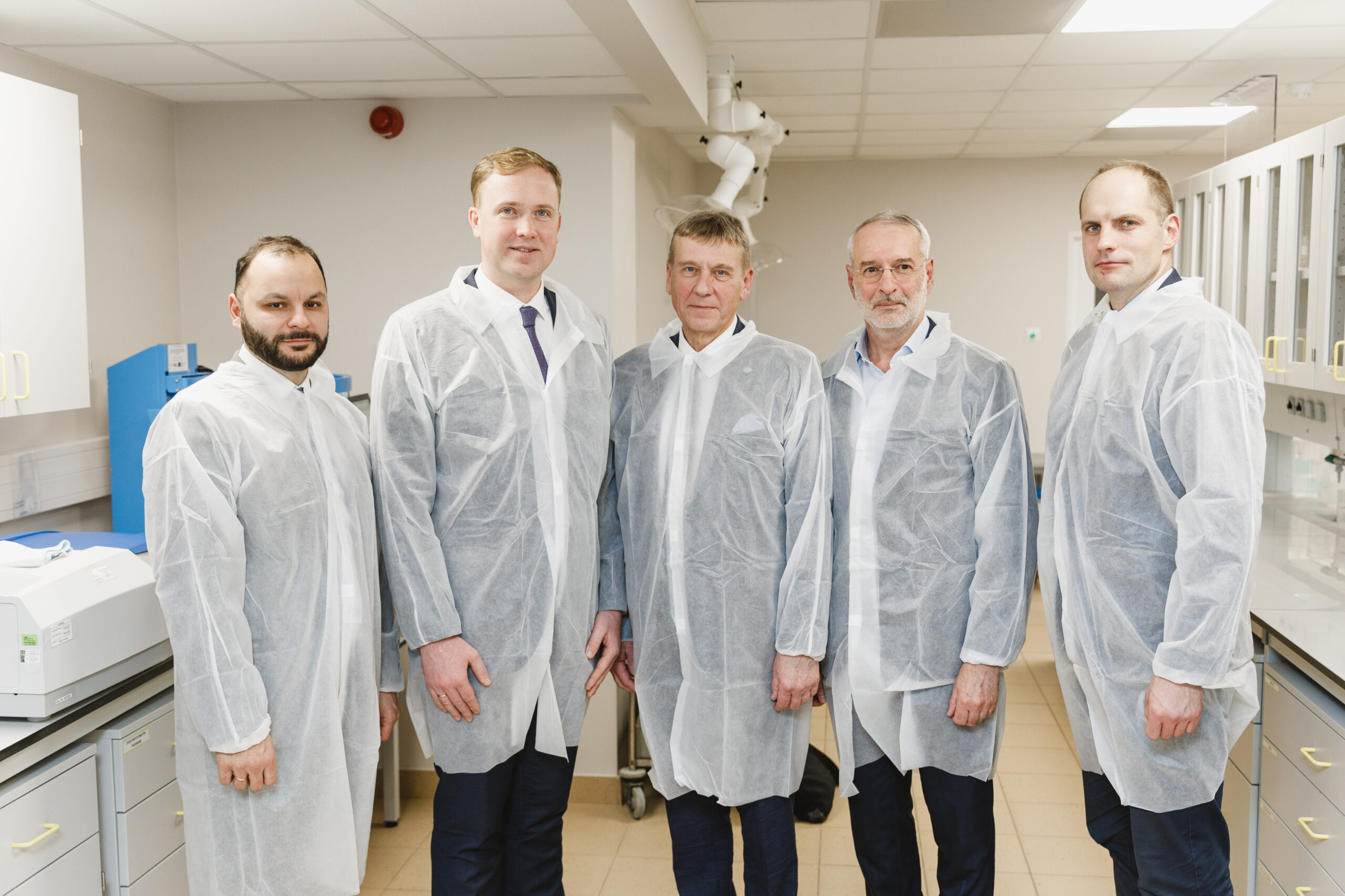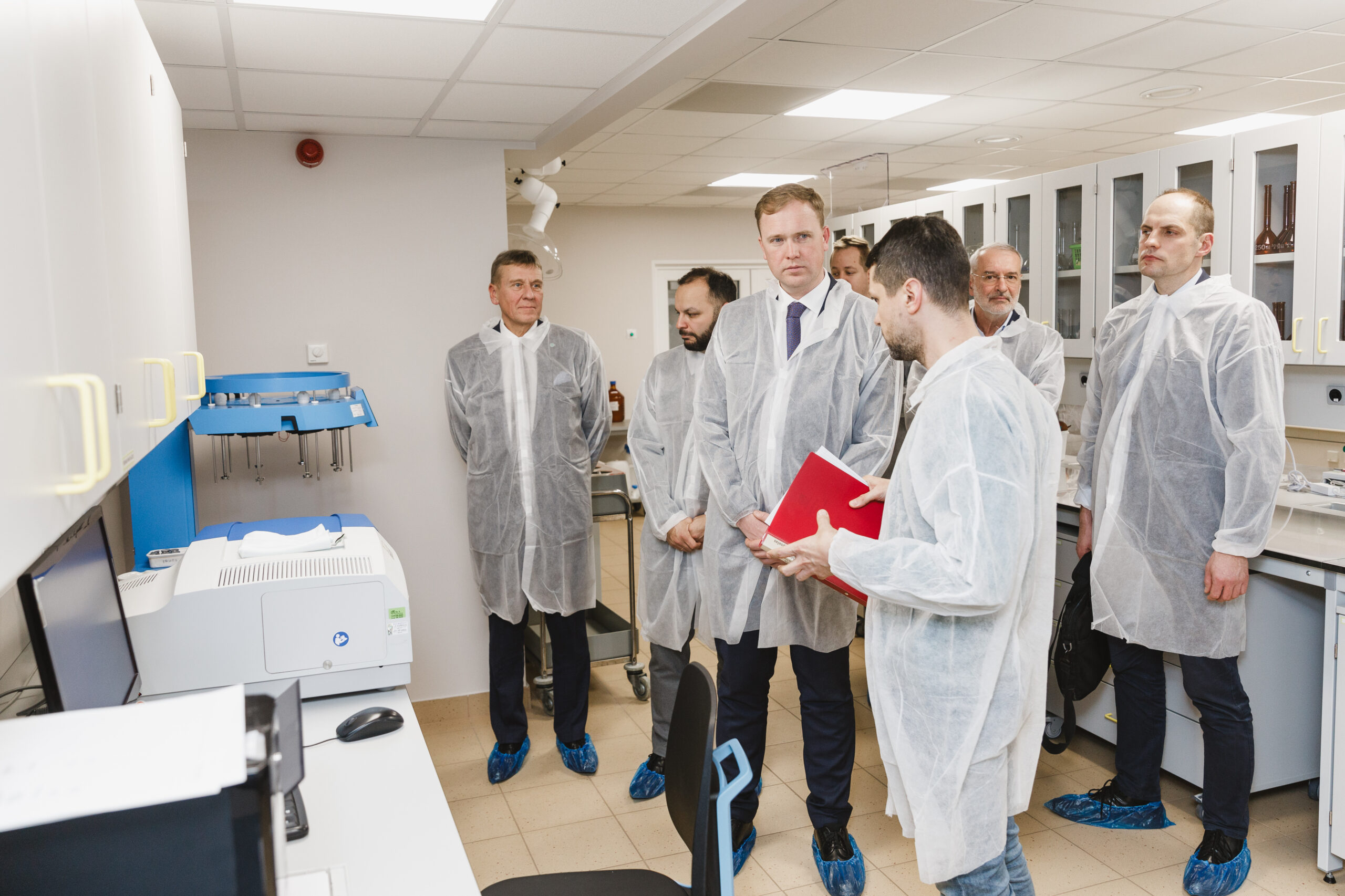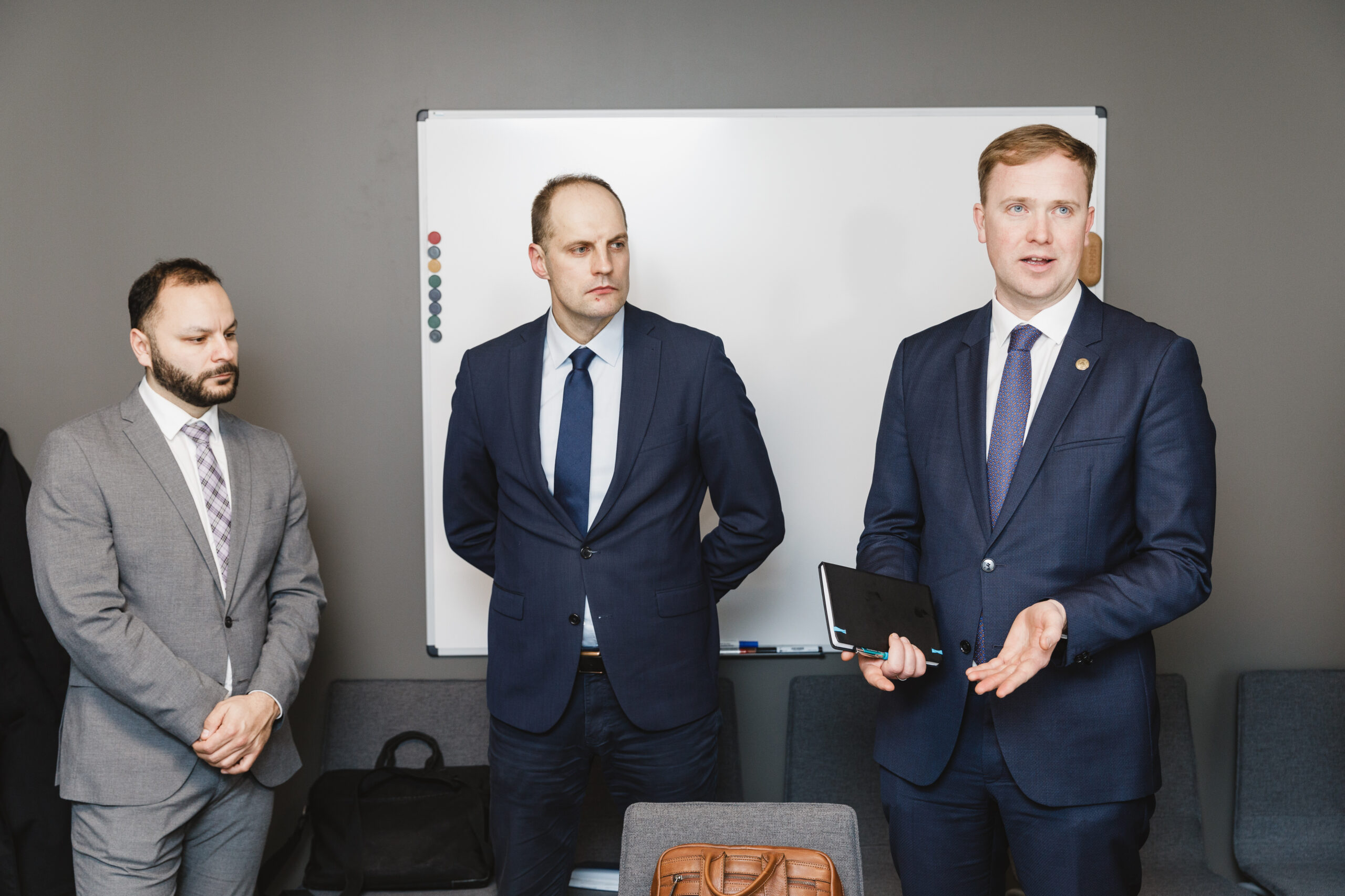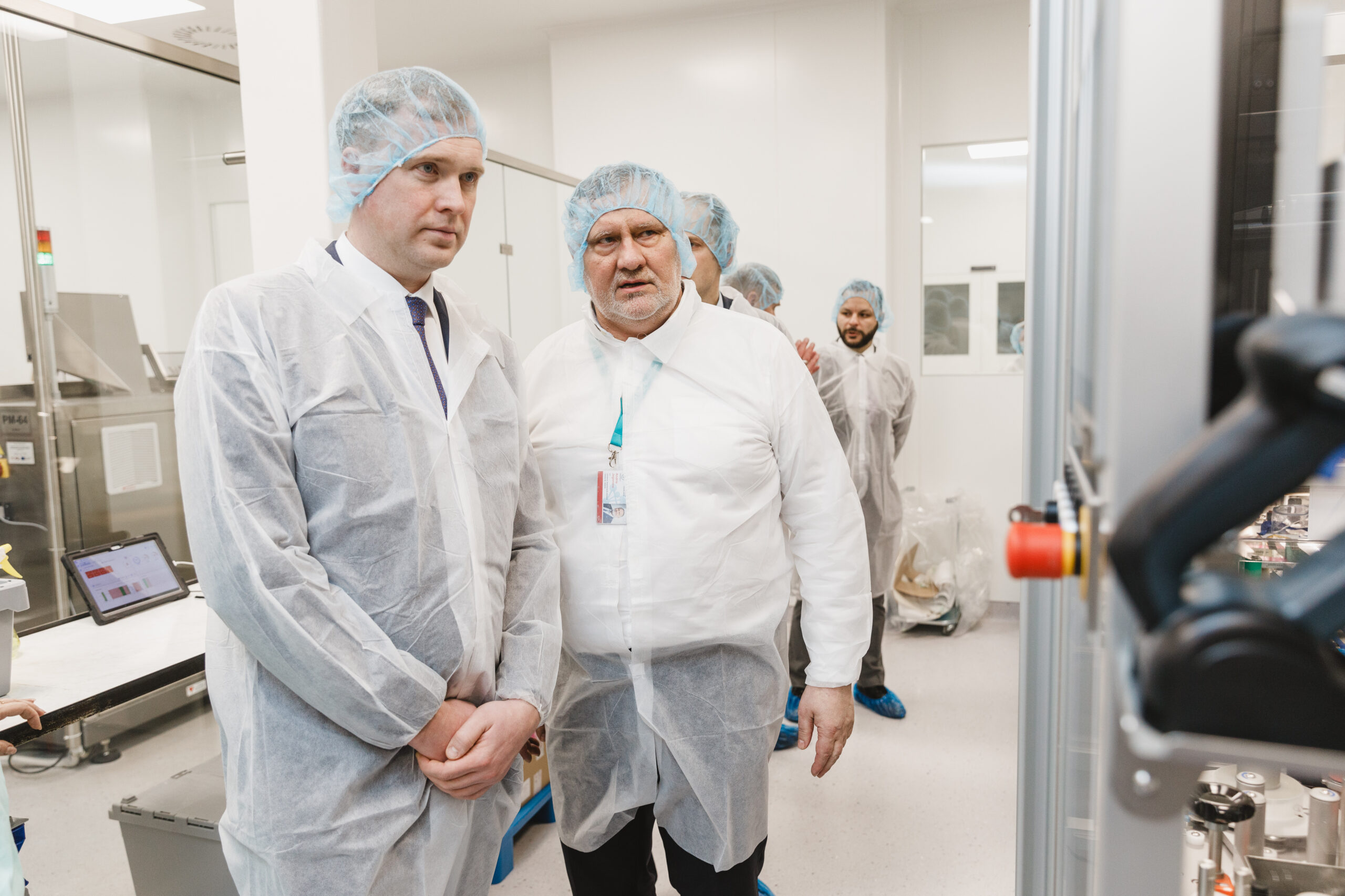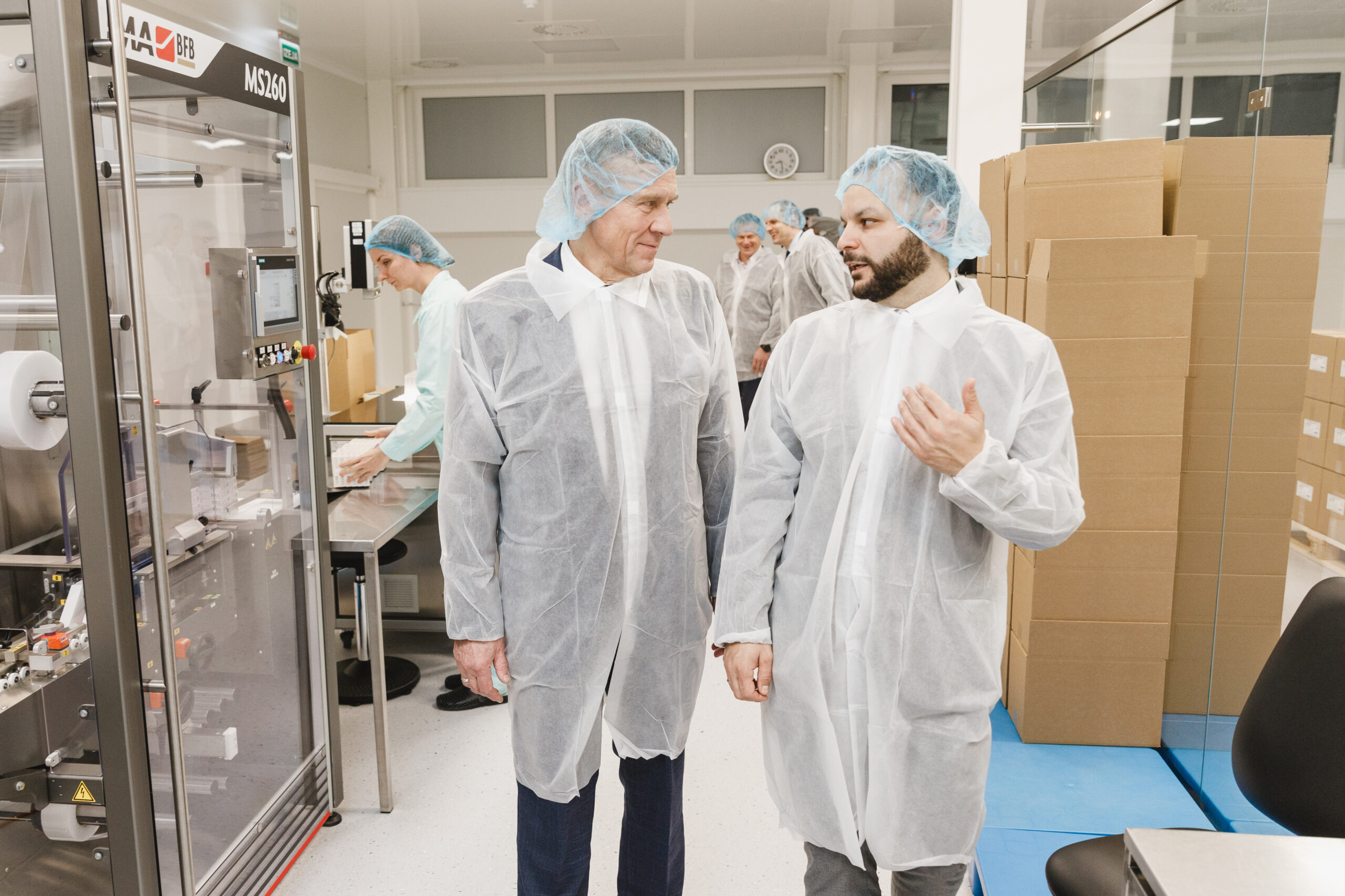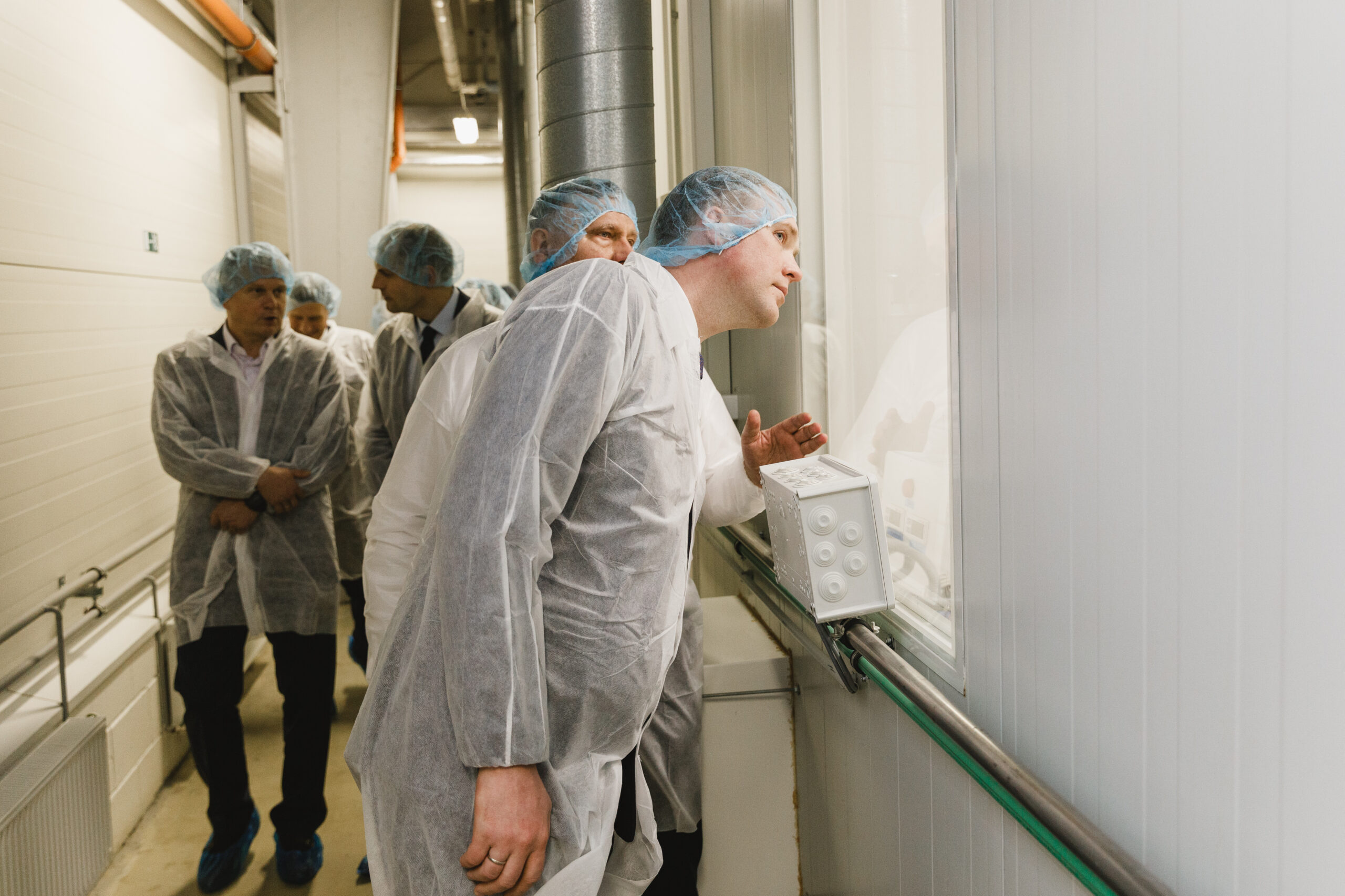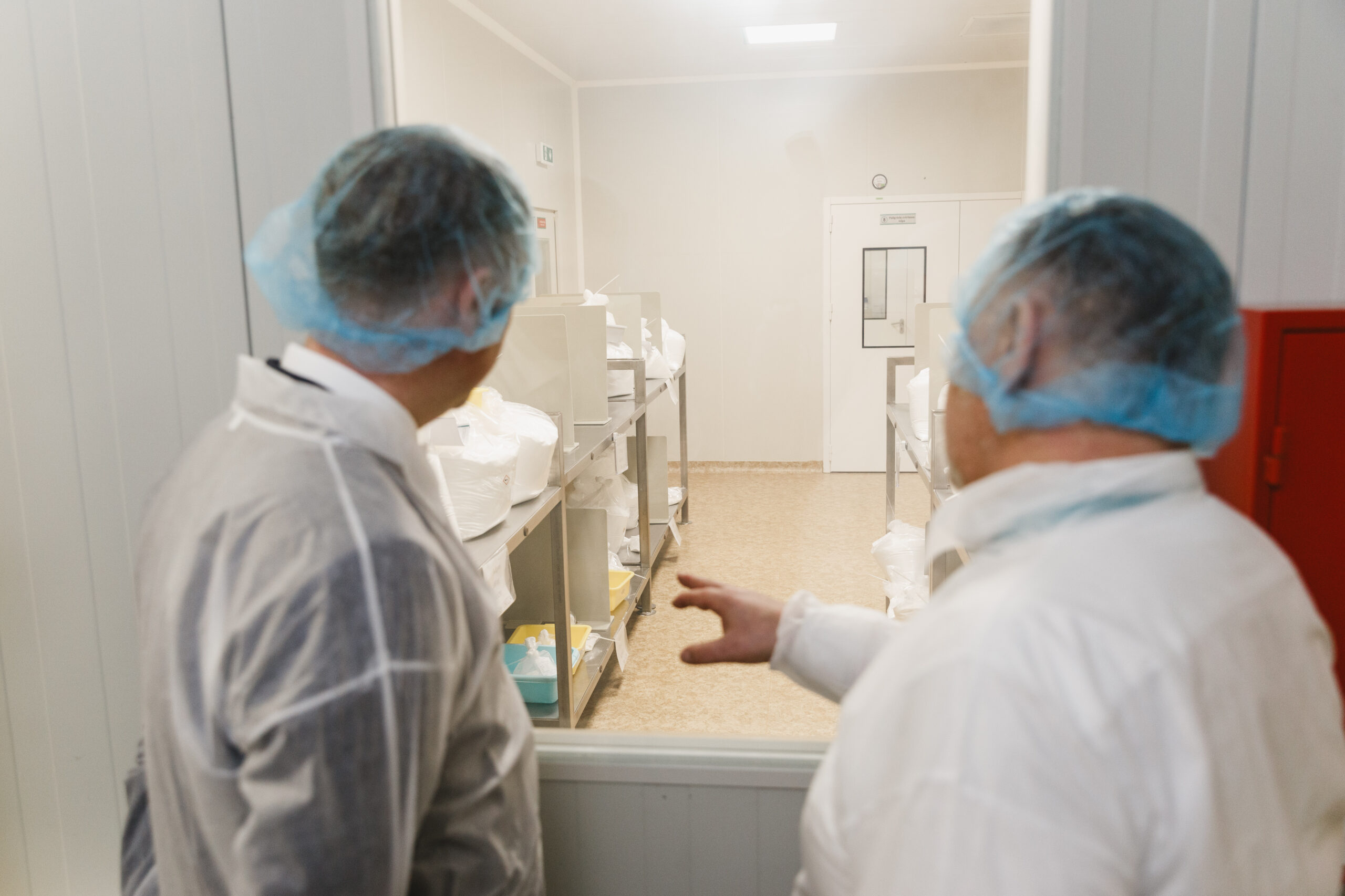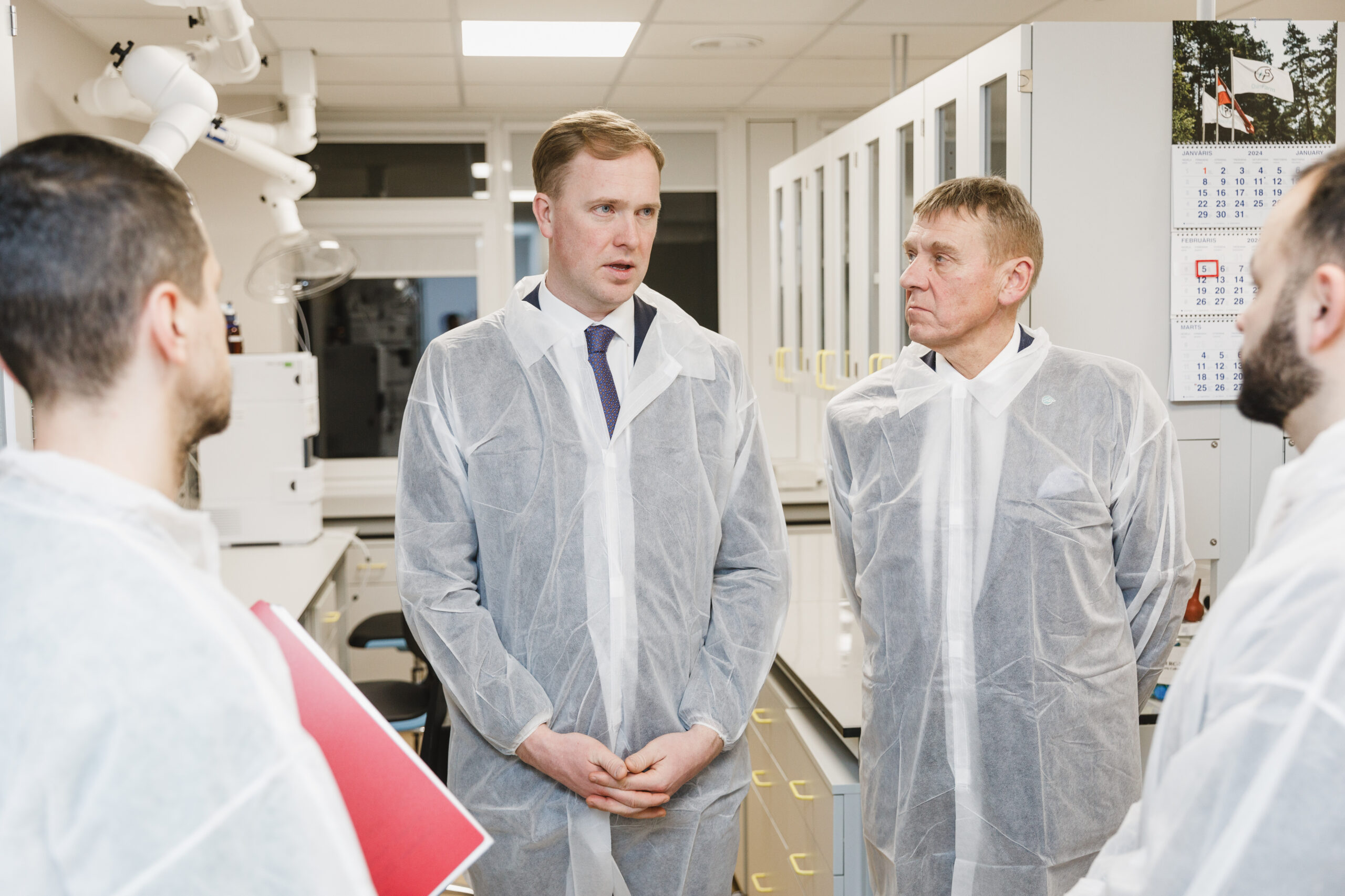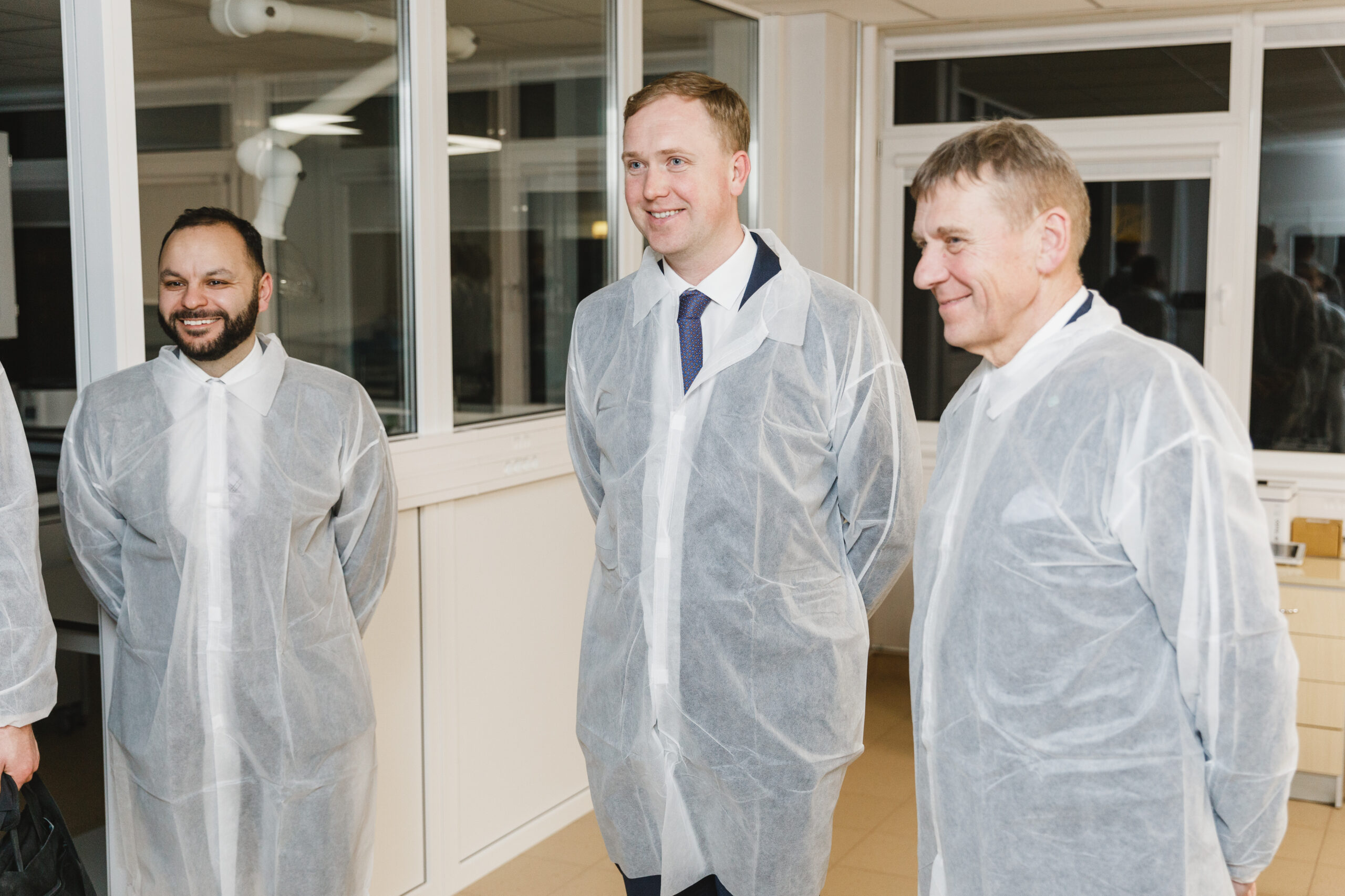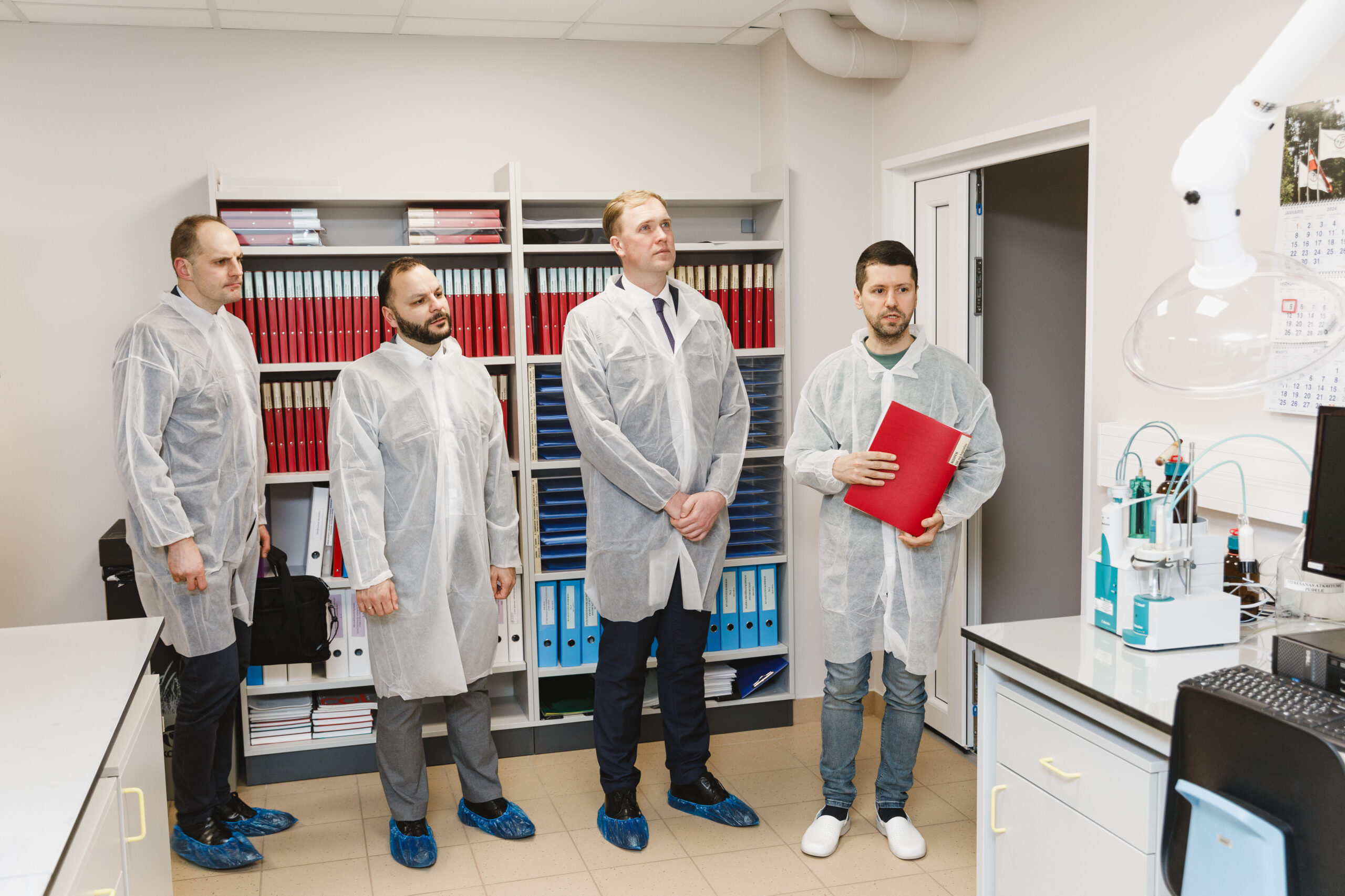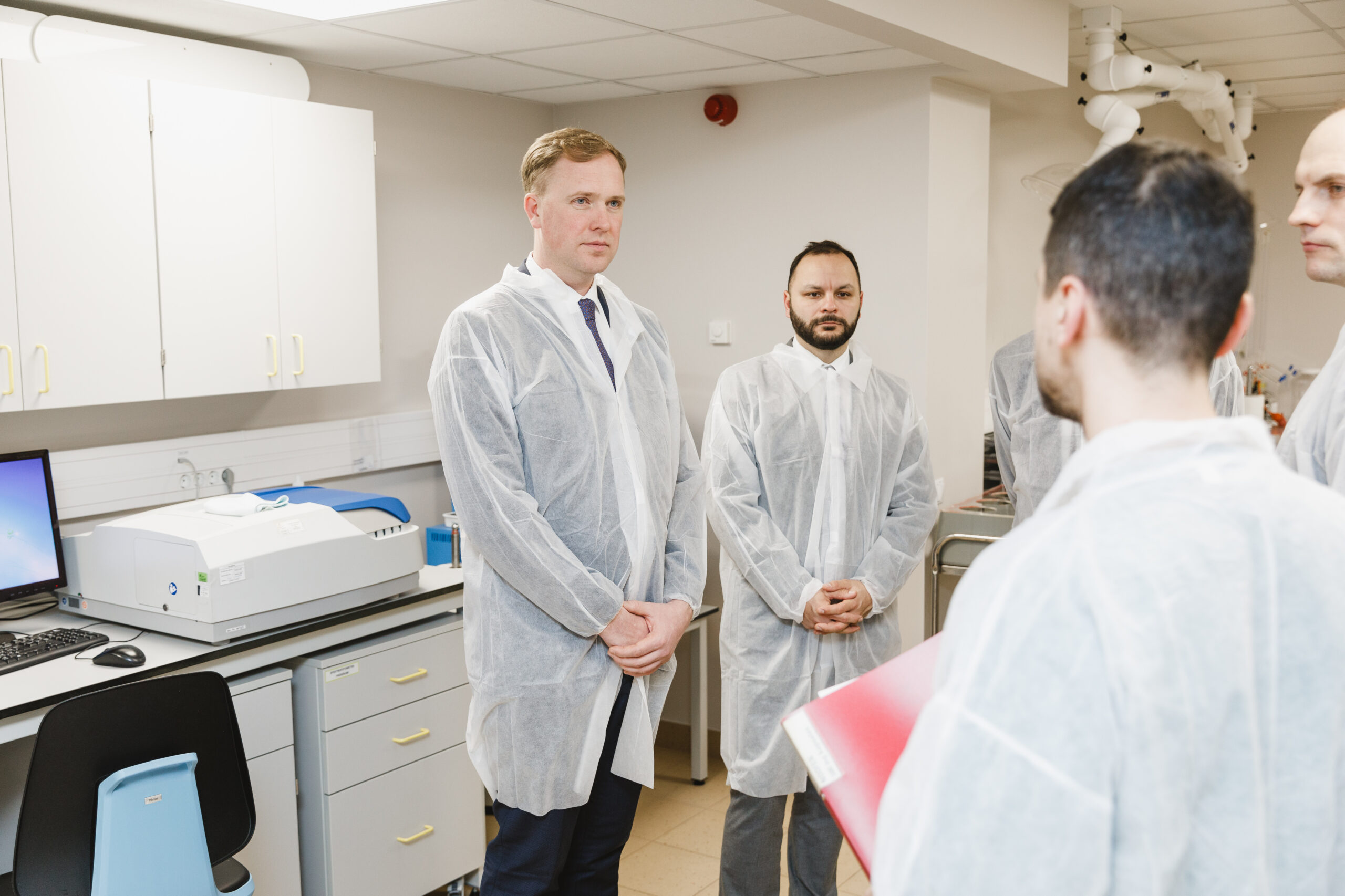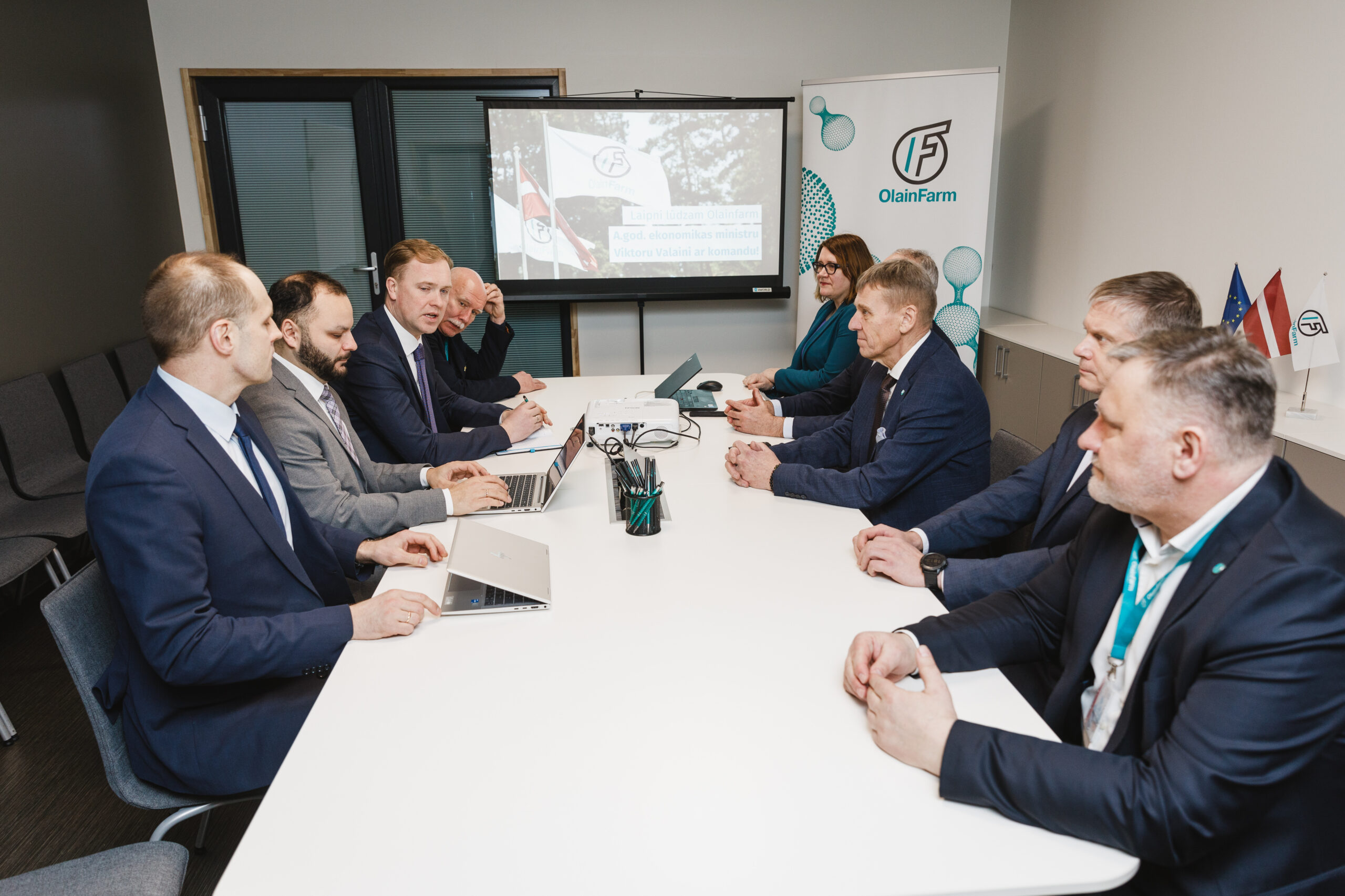On Monday, February 5th, the leading pharmaceutical company in the Baltics, JSC Olainfarm, was visited by Viktors Valainis, Minister of Economy of the Republic of Latvia. During the meeting, the Minister and the management of the company discussed the current issues concerning the development opportunities for Latvian pharmaceutical manufacturers, Olainfarm’s new product portfolio, investments in modernisation and production capacity expansion, as well as even faster expansion of operations in the Western and Global markets.
During the meeting, the Minister also visited Olainfarm’s drug production facility, where more than one billion tablets and capsules are produced and provided to patients every year. In line with the company’s long-term strategy, production capacity is set to increase significantly in the coming years, with export volumes growing by more than 80%, also with the help of state support programmes.
“Pharmacy is one of the strongest and most export-oriented sectors of the Latvian economy, with a very high export potential. It undeniably makes an important contribution to the country’s overall development and growth, creating high value-added products. Olainfarm is an excellent example of how targeted investment in automation, digitalisation and modernisation, as well as in product portfolio expansion and entering new markets, will enable Latvian companies to compete even more successfully with major global players. The task for the State is to provide effective and smart support to companies to boost their export capacity, both through various financial instruments and by making our business environment more friendly for local entrepreneurs, for example by reducing the administrative burden. We need to create a business environment that both attracts new investments to Latvia and helps national capital companies to grow and develop,” said Viktors Valainis, Minister of Economy, at the meeting.
The Minister also recalled that this year’s State Budget includes additional funding for loans to companies for large investment projects, while €26.5 million is available this year for improving technology transfer systems.
In turn, Juris Bundulis, Chairman of the Board of Olainfarm, emphasised at the meeting that at least EUR 100 million is to be invested in development in the next five years. The company also benefits from available government support programmes in various areas, which allow it to significantly expand its product portfolio, improve its competitiveness and exportability.
“With the change of Olainfarm’s shareholders less than a year ago, we completely revised our development strategy and set the goal of becoming one of the top ten European manufacturers of medicines in our therapeutic groups. In two years, we have achieved a great deal – we have submitted 21 new medicines for marketing authorisation in the European Union. This year, we plan to do this for 20 new medicines. Last year we also launched ambitious projects aimed at improving efficiency and increasing production capacity, as well as investing in sustainable production by launching large-scale projects such as a solar panel park and designing the most advanced chemical and pharmaceutical wastewater treatment plants in the Baltics,” said Juris Bundulis, Chairman of the Board of Olainfarm.
During the meeting, the parties also discussed the need to further strengthen Latvian pharmaceutical companies and their competitiveness. For example, 94% of the Latvian medicines market is made up of imported medicines, but by expanding the supply of products from domestic manufacturers, we can both increase competition and drive down prices through greater use of generic medicines. Increasing the market share of local manufacturers in Latvia would also contribute to greater security of physical access to medicines for Latvian patients, reducing the risks of supply disruptions. As Latvian domestic drug manufacturers are now competing in all markets with multi-billion international pharmaceutical companies, it is critical that industry regulation and support instruments take into account this global context and stringent regulation. For example, it takes a company a minimum of 2.5 years to bring a new product to the patient in order to comply with all registration and regulatory requirements, which may vary from market to market.
